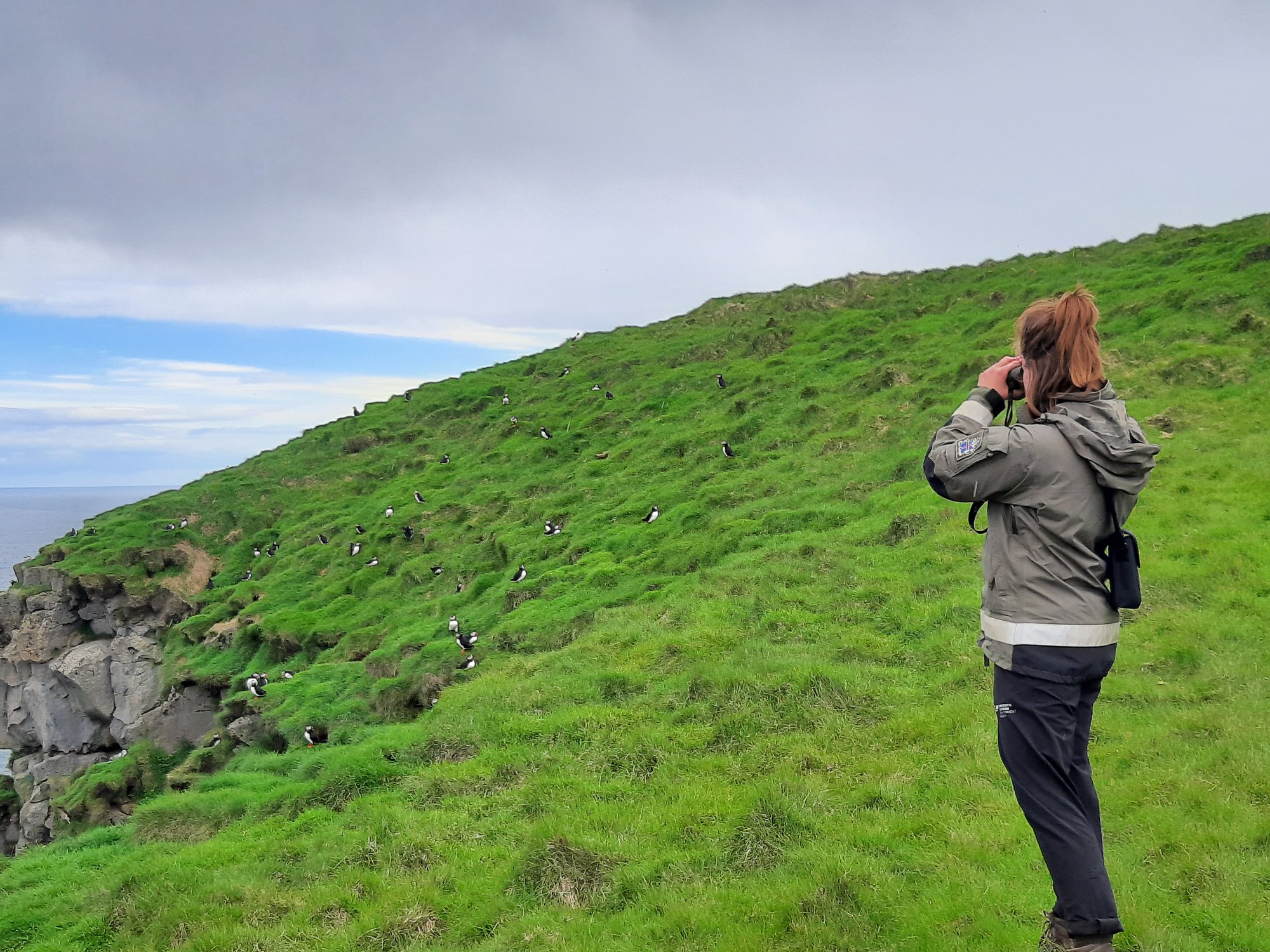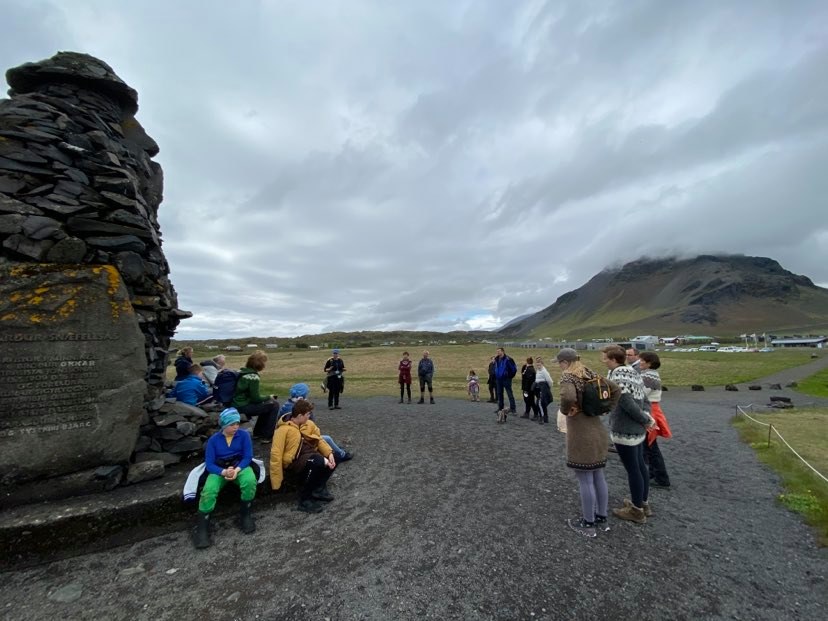Vinna við nýjar heimasíður Umhverfis- og orkustofnunar og Náttúruverndarstofnunar er í gangi. Heimasíða Umhverfisstofnunar er virk á meðan vinnunni stendur. Information in English
Rangers

Every spring sees wardens preparing for work in national parks and other nature conservation areas around Iceland. The Rangers responsibilities are similar, but can differ from one area to another.
The work is multifaceted arising from the diversity of the terrain and variety of visitors. Rangers come from different backgrounds but many of them come from the ranks of teachers and university students.
What brings them together is their common interest in nature and its preservation. Currently rangers are mostly employed during the summer months.
Reception and Orientations
Rangers receive visitors and provide them with information about natural features, places of natural and historical interest, camping facilities, hiking routes, roads and anything else the visitor may wish to know.
Some areas have a visitors center where Rangers provide information and assistance. Some Rangers have the responsibility of managing campsites and/or cabins.

Environmental Interpretation
Many Rangers offer Environmental Interpretation to visitors. An "environmental interpretation" is a nature talk aimed at enriching the visitor´s experience and interest in the surrounding area, increasing awareness and understanding of nature, and raising respect for the environment. Such an aim is based on the assumption that knowledge leads to respect and respect leads to conservation.
Environmental interpretation is provided during short and long hikes, at children´s hour, lectures, the visitors centers and of course during informal chats at any time.
Nature Conservation and Monitoring
Rangers make sure that the conservation codes and the laws set out within the Nature Conservation Act are upheld. They see to it that the environment is treated with respect by managing the flow of visitor traffic.
Rangers are responsible for signposting hiking routes and for the construction of new paths as well as the maintenance. Through these efforts the Rangers ensure that visitors have access to sight of interest and that such access has minimum impact upon the environment.
At Your Service!
Visitors can approach a Ranger at any time, for any reason. In some nature conservation areas the Ranger may be the only person familiar with the area who can be approached in case of emergency. Such instances may challenge the resourcefulness and ingenuity of the Ranger, often under harsh conditions.
.jpg)
Education
To qualify as a Ranger, the candidate needs to complete a special course in nature conservation and park management held by the Environment and Food Agency along with other organizations needs to be completed. This course is held every other year. Course participants need to be at least 20 years old and must have completed the University Entrance Examination, or have equivalent qualifications or experience. The course focuses on nature conservation, land use, geology, biology, local history, law, path construction, service, conduct, guiding, and environmental interpretation. In the future, the course will follow a curriculum set out for all Rangers within Europe.
The Icelandic Ranger Association
The Icelandic Ranger Association was established in 1976 and now has approximately 200 members. Its role is to ensure the interests of its members as well as represent and introduce the role and responsibilities of Rangers. The Association´s members have taken an active role in the conservation of Iceland´s natural heritage, often in conjunction with other independent groups.
The Ranger Association sends representatives to conferences focusing on conservation and other environmental issues. It also produces reports and releases statements dealing with these issues. Together with the Environment and Food Agency, the Association has encouraged ongoing training for Rangers. The Icelandic Ranger Association is a member of the International Ranger Federation and works closely with the Scottish Countryside Ranger Association through mutual visits and personnel exchange.
The Icelandic Ranger Association
P.O. Box 696, 121 Reykjavik, Iceland